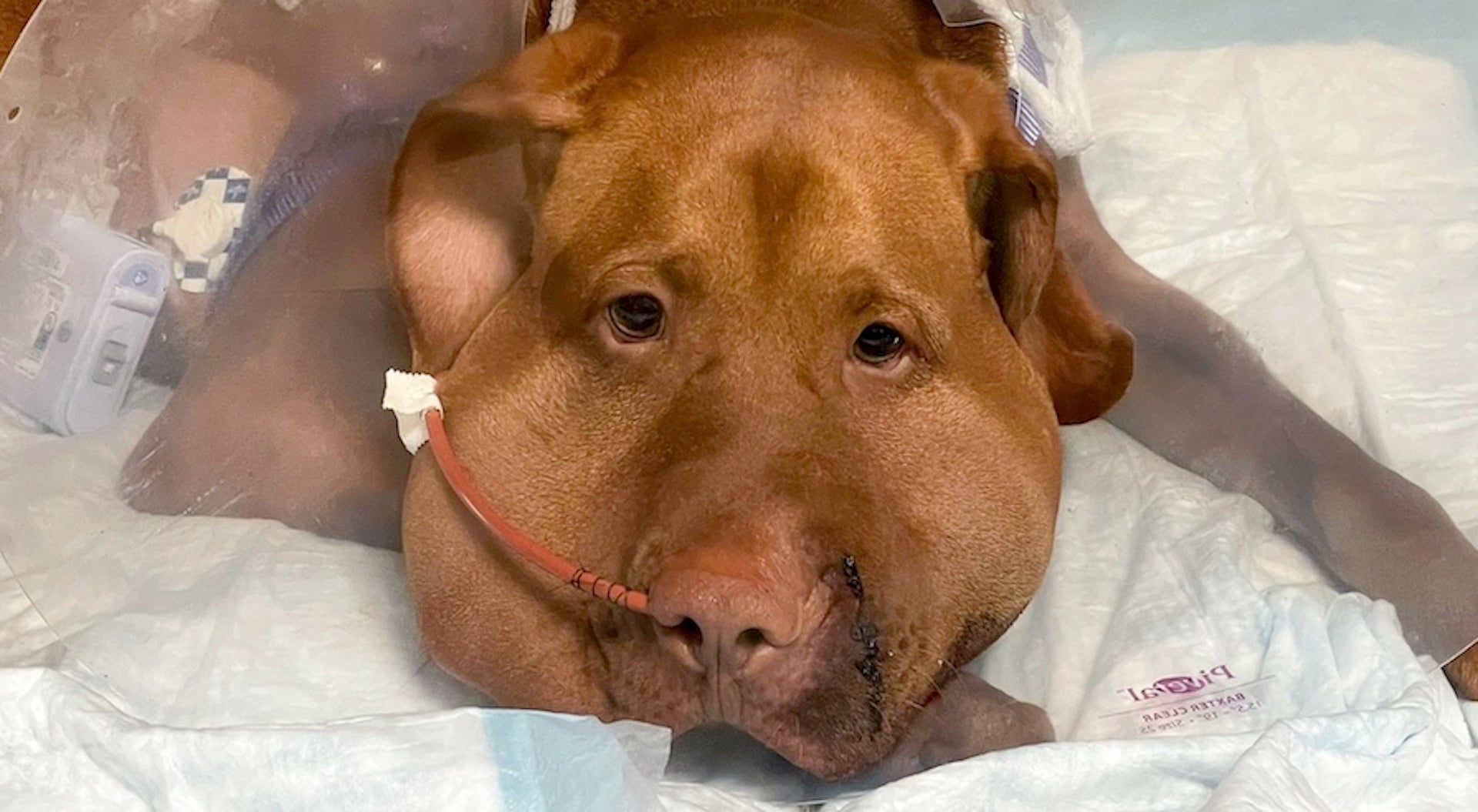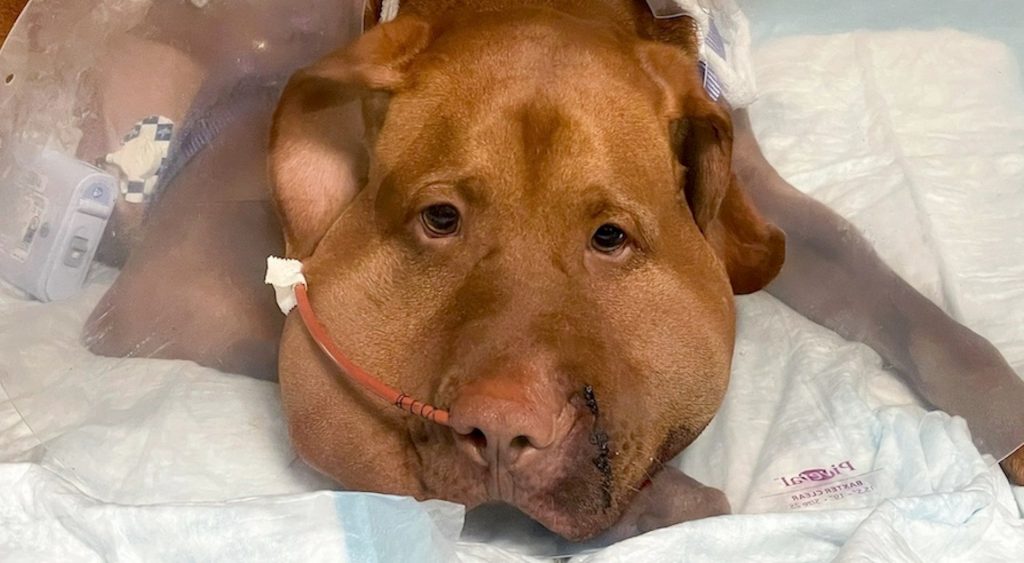Rattlesnakes are infamous for their venomous bite, and the thought of encountering one can send shivers down one’s spine. But what about our furry friends? Do rattlesnakes attack dogs? This is a common question among pet owners, and the answer is not as straightforward as you might think.
While rattlesnakes generally try to avoid confrontation with larger animals, they will not hesitate to defend themselves if they feel threatened. This means that if a dog comes too close to a rattlesnake, it is possible that the snake may bite in self-defense. So, as a responsible pet owner, it is essential to be aware of the risks and take preventative measures to protect your dog from potential rattlesnake encounters.
Rattlesnakes may attack dogs if they feel threatened or cornered. Dogs are naturally curious animals and may approach a rattlesnake, leading to a bite. The venom from a rattlesnake can be deadly to dogs, and immediate medical attention is necessary. It’s important to keep your dog on a leash and avoid areas where rattlesnakes may be present, especially during warmer months.

Do Rattlesnakes Attack Dogs?
Rattlesnakes are one of the most dangerous and venomous snakes found in North America. They are known to be aggressive and territorial, and their venom can be lethal. As a pet owner, it’s important to know if your dog is at risk of being attacked by a rattlesnake and what measures can be taken to prevent it.
1. Why Do Rattlesnakes Attack Dogs?
Rattlesnakes are not naturally aggressive towards humans or animals. They only attack when they feel threatened or cornered. Dogs, being naturally curious, may approach a rattlesnake out of curiosity, which can lead to an attack. Rattlesnakes have heat-sensing pits that can detect the body heat of their prey from a distance. This makes it easier for them to locate and attack their prey, which includes dogs.
If a dog is bitten by a rattlesnake, the venom can cause severe pain, swelling, and in some cases, death. Smaller dogs are at a higher risk of being bitten due to their size.
2. Signs of a Rattlesnake Bite in Dogs
If a dog is bitten by a rattlesnake, it’s important to seek immediate medical attention. The signs of a rattlesnake bite in dogs include:
– Swelling and pain around the bite area
– Difficulty breathing
– Weakness and lethargy
– Loss of appetite
– Vomiting and diarrhea
– Rapid heart rate
– Collapse and paralysis
If you suspect your dog has been bitten by a rattlesnake, take them to the vet immediately.
3. Prevention is Key
Prevention is the best way to protect your dog from a rattlesnake bite. Here are some measures you can take:
– Keep your dog on a leash when hiking or walking in areas known to have rattlesnakes.
– Avoid letting your dog off-leash in areas where rattlesnakes are known to live.
– Keep your backyard free of debris and tall grass where rattlesnakes can hide.
– Consider getting your dog vaccinated against rattlesnake venom. This vaccine can help reduce the severity of a rattlesnake bite.
4. What to Do if You Encounter a Rattlesnake
If you encounter a rattlesnake while walking your dog, it’s important to stay calm and keep your dog away from the snake. Here are some tips:
– Keep your dog on a short leash and move away from the snake slowly.
– Do not try to handle or kill the snake.
– If the snake is in your backyard, call a professional to have it safely removed.
– If your dog is bitten by a rattlesnake, seek immediate medical attention.
5. Benefits of Rattlesnake Vaccination for Dogs
Getting your dog vaccinated against rattlesnake venom can offer several benefits, including:
– Reducing the severity of a rattlesnake bite
– Buying time to get your dog to a vet for treatment
– Avoiding costly medical bills associated with treating a rattlesnake bite
– Providing peace of mind for pet owners who live in areas with a high risk of rattlesnake encounters
6. Rattlesnake Vaccination Vs. Anti-Venom Treatment
Rattlesnake vaccination and anti-venom treatment are two different methods of protecting your dog from rattlesnake bites. Here’s how they compare:
– Rattlesnake vaccination is a preventative measure that can reduce the severity of a rattlesnake bite. Anti-venom treatment is a reactive measure used to treat a rattlesnake bite after it occurs.
– Rattlesnake vaccination is less expensive than anti-venom treatment.
– Rattlesnake vaccination does not require hospitalization or monitoring, unlike anti-venom treatment.
7. Conclusion
Rattlesnakes can be a serious threat to dogs, and it’s important for pet owners to take measures to prevent rattlesnake bites. Keeping your dog on a leash, avoiding areas known to have rattlesnakes, and getting your dog vaccinated against rattlesnake venom can all help reduce the risk of a bite. If you do encounter a rattlesnake, stay calm and move away slowly while keeping your dog on a short leash. Remember, prevention is key when it comes to protecting your furry friend from rattlesnake bites.
Frequently Asked Questions
As a dog owner, it is essential to know the potential dangers that your furry friend may face, especially when exploring the great outdoors. One of the most common concerns is whether rattlesnakes attack dogs. Here are some frequently asked questions and answers on this topic:
What should I do if my dog gets bitten by a rattlesnake?
If you suspect that your dog has been bitten by a rattlesnake, seek veterinary care immediately. Time is of the essence, and the sooner you get your dog to a veterinarian, the better the chances of recovery. Do not try to suck out the venom or use a tourniquet, as these methods can do more harm than good.
Your veterinarian may administer antivenom to counteract the venom’s effects, as well as provide supportive care such as IV fluids and pain management. Recovery time will depend on the severity of the bite and your dog’s overall health.
How can I prevent my dog from getting bitten by a rattlesnake?
Prevention is key when it comes to rattlesnake bites. Avoid letting your dog off-leash in areas where rattlesnakes are known to inhabit, such as rocky outcroppings, tall grasses, and desert areas. Keep your dog on a short leash and teach them the “leave it” command so that they don’t approach a snake.
Consider getting your dog vaccinated against rattlesnake venom. The vaccine does not provide complete protection, but it can help reduce the severity of symptoms and buy you more time to get your dog to a veterinarian if they do get bitten.
What are the symptoms of a rattlesnake bite in dogs?
The symptoms of a rattlesnake bite can vary depending on the severity of the bite and your dog’s overall health. Common symptoms include swelling and pain around the bite area, lethargy, vomiting, difficulty breathing, and pale gums. In severe cases, a dog may experience shock, seizures, and even death.
If you suspect that your dog has been bitten by a rattlesnake, seek veterinary care immediately, even if your dog is not showing any symptoms.
Can dogs survive rattlesnake bites?
With prompt veterinary care, many dogs can survive rattlesnake bites. The key is to get your dog to a veterinarian as soon as possible and provide supportive care, such as antivenom and IV fluids. Recovery time will depend on the severity of the bite and your dog’s overall health.
Prevention is the best way to protect your dog from rattlesnake bites, so be sure to take precautions when exploring areas where rattlesnakes may inhabit.
What should I do if I see a rattlesnake while out with my dog?
If you encounter a rattlesnake while out with your dog, do not approach or try to capture the snake. Keep your dog on a short leash and calmly move away from the snake. If the snake is in a public area, contact animal control or a wildlife removal service to have it safely removed.
Remember, prevention is key when it comes to rattlesnake bites. Be aware of your surroundings and take precautions when exploring areas where rattlesnakes may inhabit.
Training dogs to avoid rattlesnakes
In conclusion, it is important for pet owners to be aware of the potential danger of rattlesnakes when taking their dogs on outdoor adventures. While rattlesnake attacks on dogs are relatively rare, it is important to take precautions such as keeping dogs on a leash, avoiding areas with known rattlesnake populations, and being able to recognize the signs of a rattlesnake encounter.
Additionally, it is important to be prepared for a rattlesnake encounter by carrying a snakebite kit and knowing how to use it. If a dog is bitten by a rattlesnake, it is important to seek immediate veterinary care as the venom can be deadly.
Overall, while rattlesnake attacks on dogs are not common, it is important for pet owners to take the necessary precautions to keep their furry friends safe while enjoying the great outdoors. So, always be aware and prepared to avoid any potential danger and enjoy a safe and fun adventure with your beloved pet.


